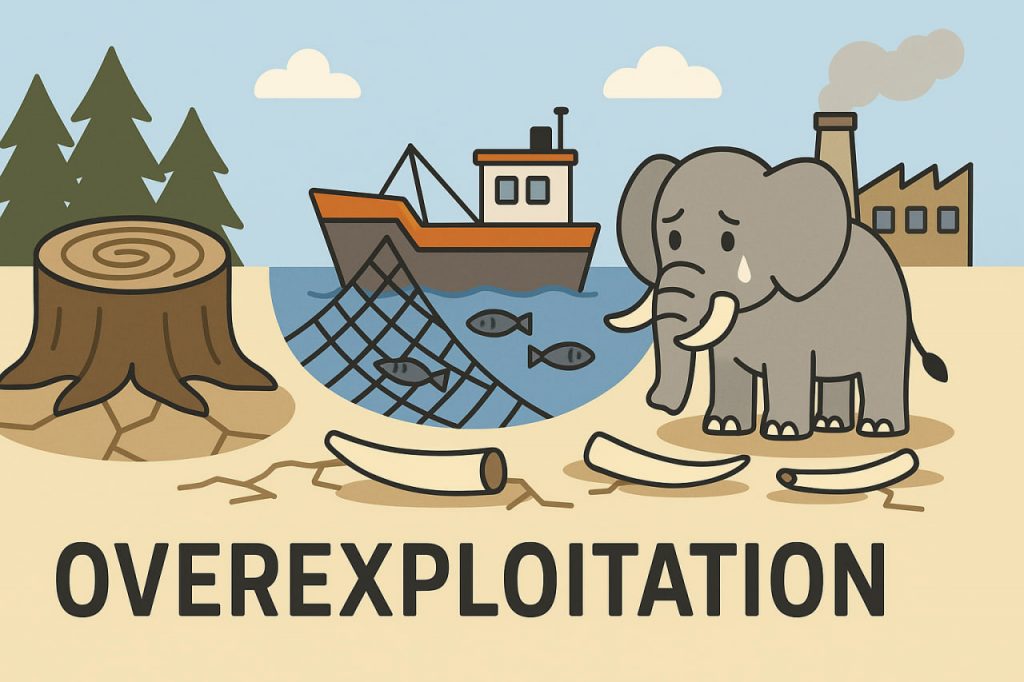Overexploitation refers to the unsustainable use of natural resources at a rate faster than they can replenish. It affects wildlife, forests, oceans, soil, and freshwater systems. While human societies depend on nature for survival, excessive extraction and consumption lead to depletion, threatening ecosystems and biodiversity.
Historical Background
Throughout history, civilizations have overused resources, often leading to collapse. Ancient societies that practiced overgrazing, deforestation, or overfishing suffered from food shortages and environmental decline. In modern times, industrialization and globalization have intensified resource extraction, accelerating the scale and impact of overexploitation worldwide.
Examples of Overexploitation
- Forests – logging for timber, fuel, and agriculture leads to deforestation.
- Oceans – overfishing reduces fish populations, threatening marine food chains.
- Wildlife – hunting and poaching endanger species such as elephants and tigers.
- Soils – over-farming and poor land management cause erosion and desertification.
- Freshwater – overuse for agriculture and cities lowers groundwater levels.
These examples demonstrate how multiple ecosystems face stress due to human activity.
Causes of Overexploitation
The main drivers include population growth, economic demand, and technological advancements that enable large-scale extraction. Lack of regulation, weak enforcement, and illegal activities worsen the problem. Cultural factors, such as demand for rare animal products, also play a role. Together, these forces push ecosystems beyond their natural limits.
Environmental Consequences
Overexploitation leads to biodiversity loss, ecosystem collapse, and reduced resilience to climate change. Forest destruction reduces carbon storage, accelerating global warming. Overfishing disrupts marine ecosystems, while soil degradation threatens food security. The extinction of species caused by overexploitation creates irreversible damage to Earth’s biological heritage.
Solutions and Sustainable Practices
Addressing overexploitation requires balancing human needs with ecological limits. Solutions include sustainable forestry, responsible fishing quotas, and stricter wildlife protection laws. Technologies such as water recycling and renewable energy reduce pressure on natural systems. Public awareness, eco-certification, and global agreements like the Convention on International Trade in Endangered Species (CITES) play vital roles in protecting resources.
Conclusion
Overexploitation represents one of the greatest challenges of our time. It endangers biodiversity, ecosystems, and human well-being. By adopting sustainable practices, enforcing regulations, and shifting cultural attitudes, society can reduce resource overuse and secure a balance between people and the natural world.
Only united humanity can overcome all the challenges of modern civilization. If we do not do this, humanity will perish.
Glossary
- Overexploitation – unsustainable use of resources beyond their renewal rate.
- Deforestation – large-scale loss of forests due to logging and agriculture.
- Overfishing – depletion of fish stocks from excessive harvesting.
- Desertification – land degradation turning fertile soil into desert.
- CITES – international treaty protecting endangered species from trade.
- Sustainable practices – methods of using resources that ensure long-term balance.


